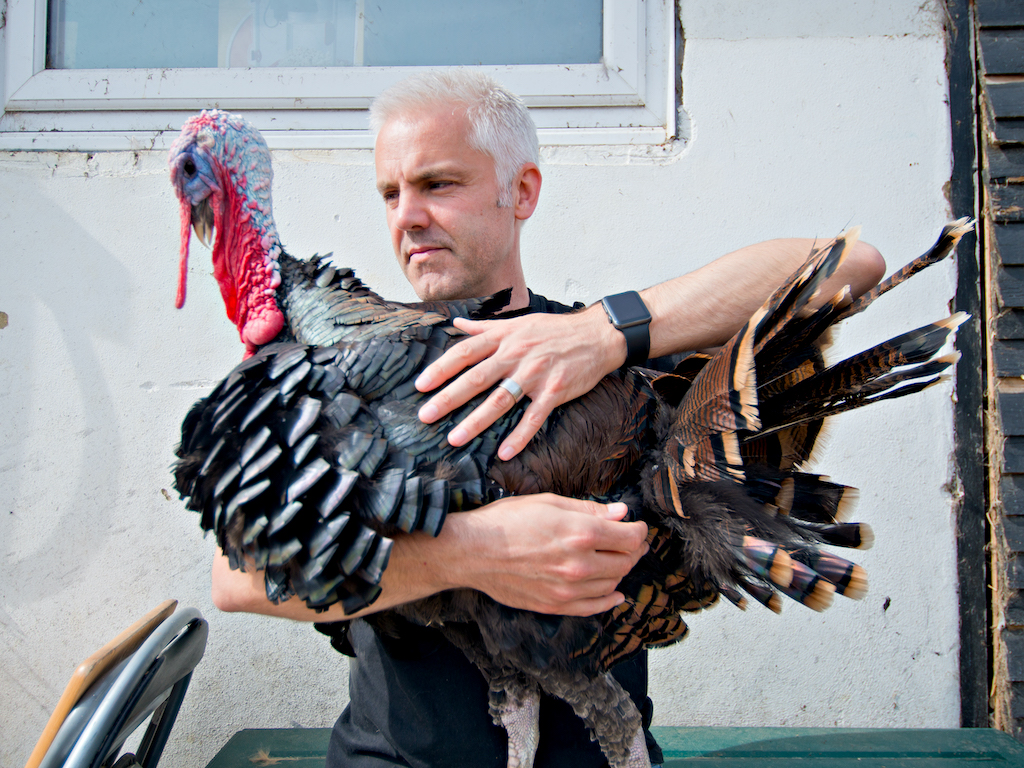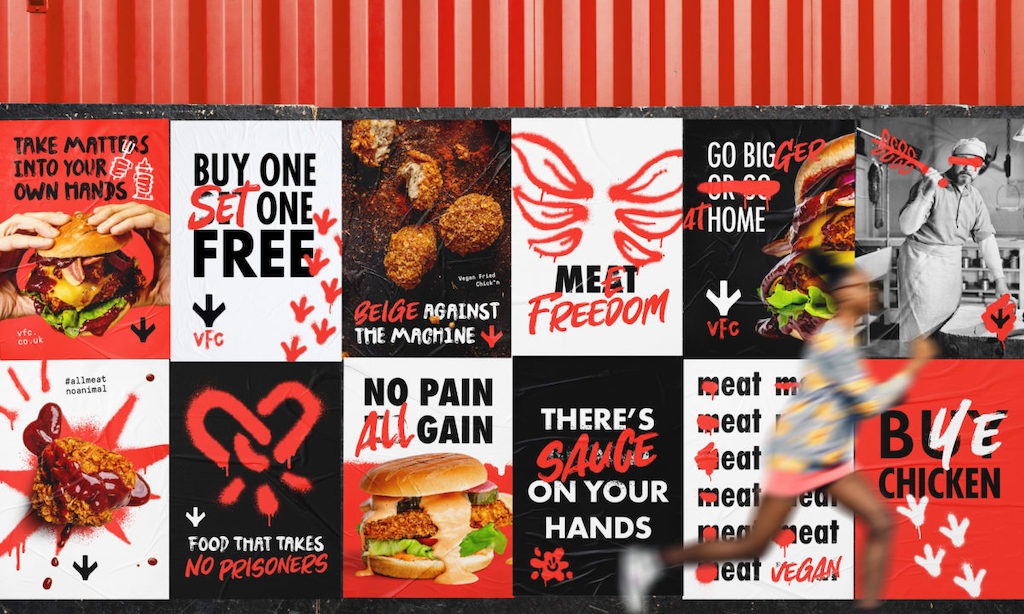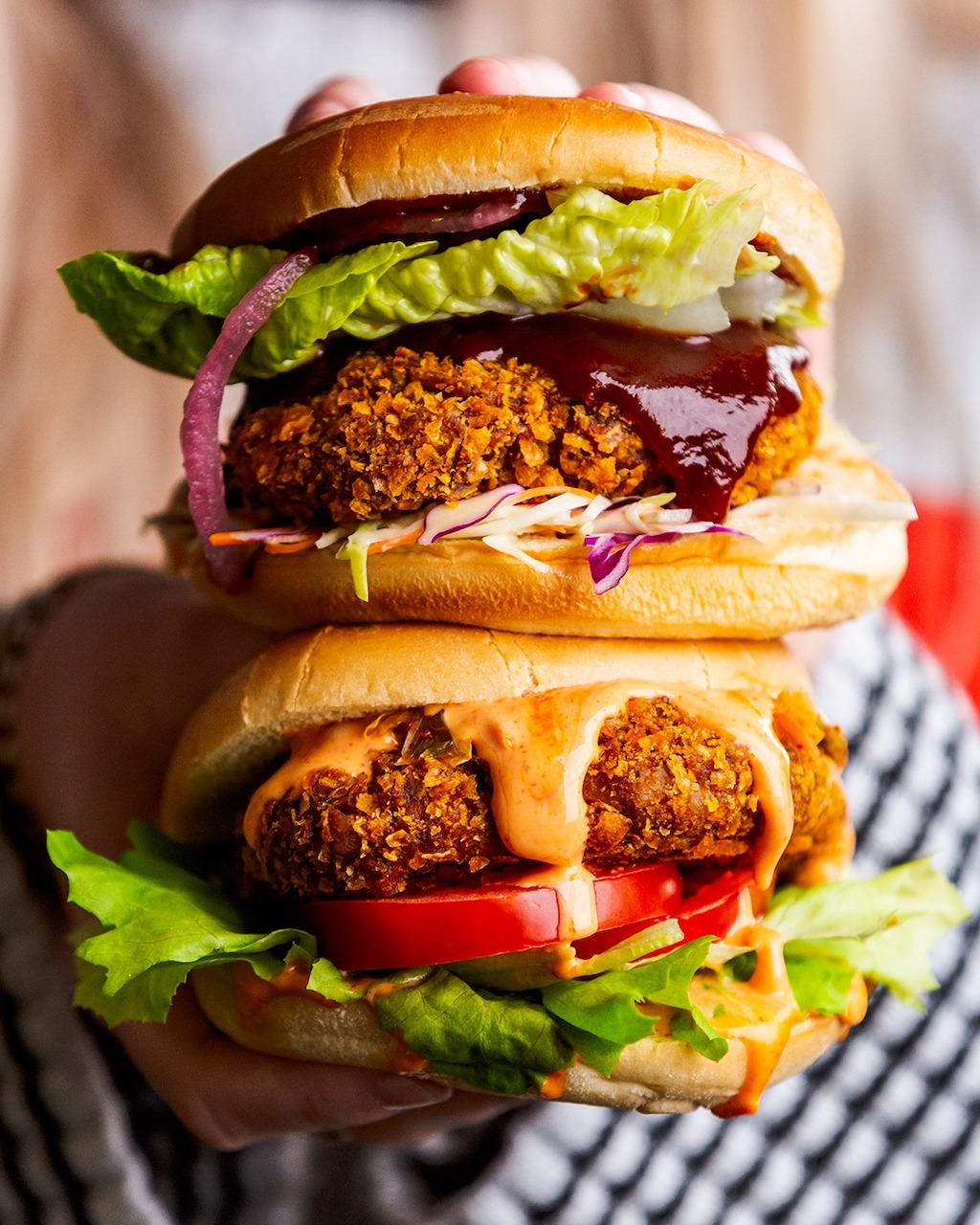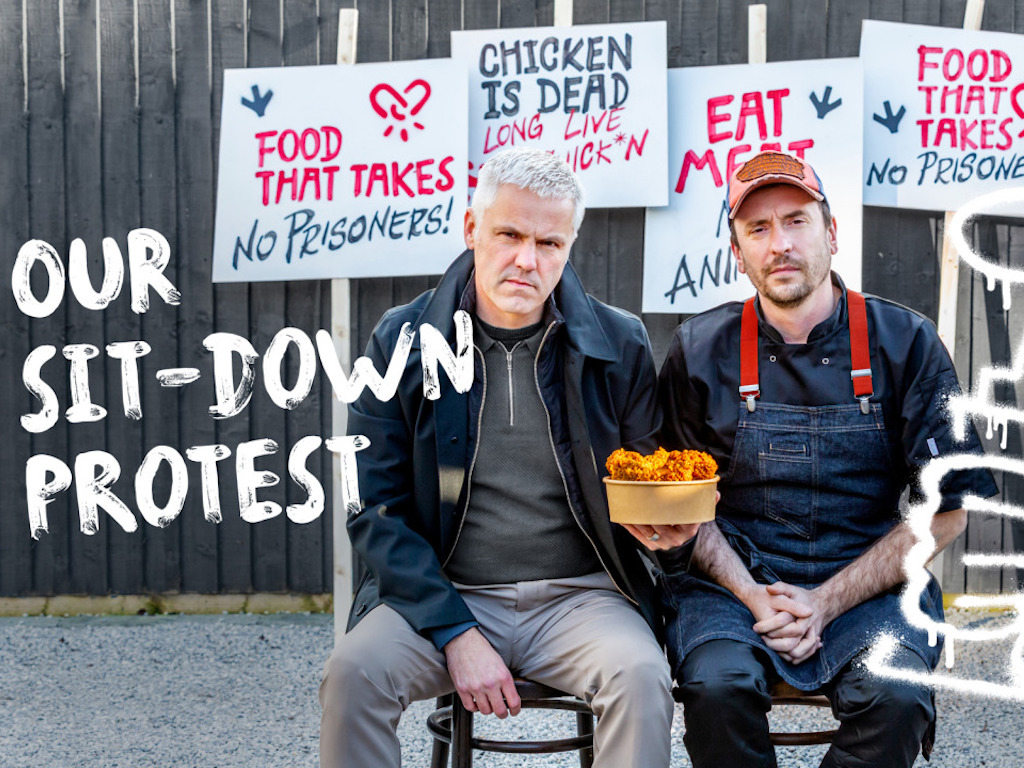6 Mins Read
Matthew Glover, the co-founder of the world-famous Veganuary movement, is now fully focused on his new venture: VFC. Shorthand for Vegan Fried Chicken, the brand is a tongue-in-cheek wordplay of the fast-food giant out of Kentucky—and it’s a part of the growing wave of startups creating solutions for our broken food system. But unlike other vegan brands on the market, Glover isn’t shying away from putting animals at the forefront of their mission.
Perhaps the loudest rallying cry of the plant-based food space is sustainability. Products offering consumers low-carbon, plant-based alternatives are a big part of the solution. Eco-conscious shoppers are flocking to buy up these sustainable stand-ins for their burger and cheese fix.
Glover is fully aware of the myriad environmental benefits of plant-based alternatives. He’s the man behind Veganuary after all, a movement that has convinced over one million people to go vegan for a whole month. That has meant saving more than 103,000 tonnes of carbon dioxide—equivalent to the emissions of driving around the entire planet 15,000 times.

‘We put animals front and centre to make them visible’
He’s since created Veg Capital, a nonprofit vegan investment fund that is supporting the very food tech entrepreneurs and founders in creating new sustainable food products.
But Glover has deliberately chosen to put animals first when it comes to building VFC, which he launched with co-founder Adam Lyons. The two of them went undercover into a chicken factory farm to document the reality of these places prior to launch. Adam is the food guy, but also shares Matthew’s mission for sparing animals. The brand’s social media page is full of hard-hitting facts about the circumstances farmed chickens have to endure before they end up on consumers’ plates.
“Most vegan food brands do not focus on animals but it’s entirely natural for us, as we are activists first and food manufacturers second,” he tells us. “We put animals front and centre to make them visible. When people talk about meat, they don’t talk about animals. We feel that we would be doing the victims a disservice if we didn’t speak up for them.”
We feel that we would be doing the victims a disservice if we didn’t speak up for them.
By making animals the focus of the brand, VFC aligns itself with the farmed animal movement, which is largely focused on moral messaging, unlike most vegan food companies and nonprofits that are supporting the alternative protein ecosystem.
“Maintaining a moral focus in the development of animal-free foods is very important to us for ensuring the long-term success of the farmed animal movement,” Glover explains.
Consumers do care about animal welfare
Another big part of why VFC is incredibly focused on animals is simply because their audience cares. For consumers, it’s not always about price, taste and convenience, though these factors are still vital for a brand to build a following.
For Glover, adding the animal welfare element on top of all these motivators will only serve to make its vegan chicken even more appealing to consumers.

Making the ethical motivation to end factory farming and animal slaughter the most important feature of our marketing is likely to be a much more powerful tool.
“If we also emphasise the ethical benefits of vegan food technology, then we’ll have a better chance of succeeding,” Glover tells Green Queen Media. “People are more easily motivated by ethics to work towards building a social movement and creating institutional change.”
“So if we want to achieve widespread plant-based meat adoption on an institutional level, making the ethical motivation to end factory farming and animal slaughter the most important feature of our marketing is likely to be a much more powerful tool,” he continues.
“If other companies working on animal-free foods followed suit we could push for change at a faster pace.”

‘People hate factory farms’
Glover points out that recent research proves that consumers do have a disdain for unethical farming practices. “People actually hate factory farms,” he says, citing the results of the latest Viva-commissioned survey, which found that nearly 9 in 10 people in the U.K. are in favour of an immediate ban on factory farming.
Focusing on the animals—and exposing the cruelty behind factory farms across its social media page and marketing—speaks directly to these consumers who are concerned, yet still haven’t made the full switch away from conventionally produced meat.
We aim to inspire them to make choices that are in line with their principles.
“Factory farms thrive on secrecy,” Glover tells us. “Supermarkets do not show images of the farms they source chickens from, nor do the chicken restaurants or food brands using chicken meat. It makes it very easy for people to forget how bad life is for birds on farms.”
“By showing them what their purchases fund, we aim to inspire them to make choices that are in line with their principles,” he continues, adding that their ethical focus will only serve to grow its loyal fanbase as it resonates with vegans and vegetarians too.
Pushing forward a ‘positive rebellion’
Ultimately, putting animals front and centre is a way for VFC to challenge the norm through a “voice of positive rebellion,” says Glover.
“We challenge the norm, but often with thoughtful wit and an edgy attitude. While we poke, provoke and have a bit of fun, we don’t shy away from serious debate too.”
Yes, the brand blasts images of the “dead bins” inside factory farms. But they also use the platform to advocate for chickens.
Our brand was built around animals as much as food for the simple reason that VFC was set up, not to make money but to save animals.
“Our social media feed is full of chickens, including our much-loved feature Chicken of the Month,” shares Glover. “We share facts and films of rescued birds enjoying sanctuary life, as well as images from inside farms. We ensure birds are mentioned in all our media releases. This business is for them.”
True to their motto of putting chickens first, VFC literally has a counter on its website showing people how many lives are being saved by choosing the vegan option. “This figure sits proudly on our website. Seeing it tick up and up is motivating but it also holds us to account.”
“From the very beginning, our brand was built around animals as much as food for the simple reason that VFC was set up, not to make money but to save animals. It’s at the heart of everything we do. It’s what motivates us.”
This article is part of special insight series in collaboration with vegan chick*n brand VFC in which we explore their unique and inspiring approach to building a cruelty-free food brand from scratch. Read the other articles in the series here.
All images courtesy of VFC.




